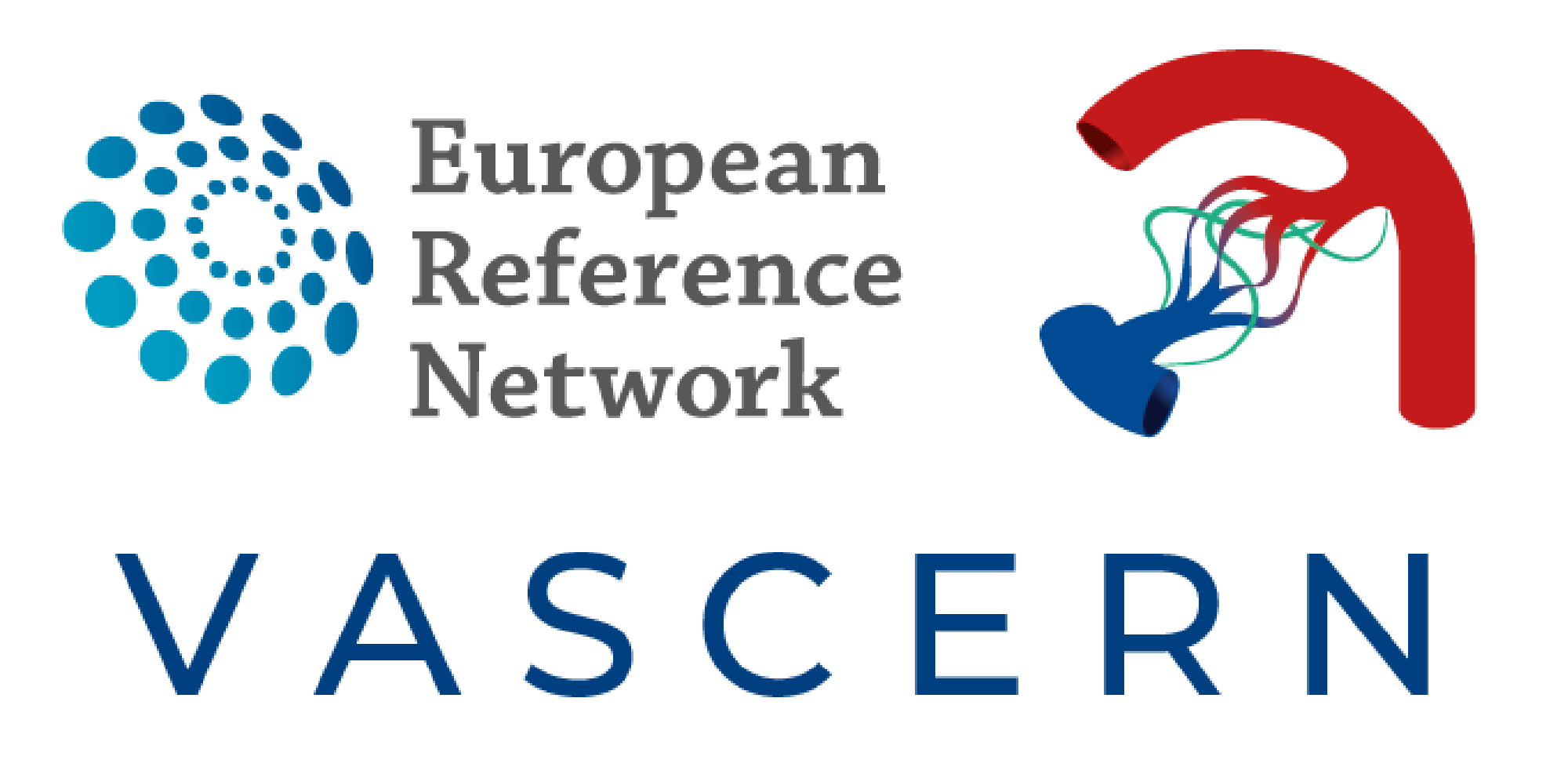Gene Compendiums
Explore curated gene-specific information on Heritable Thoracic Aortic Diseases (HTAD), compiled by leading European experts. Each compendium includes data on gene function, variant interpretation, phenotypic characteristics, and clinical recommendations.
TGF-βR1 gene
TGF-βR1 encodes the transforming growth factor-beta receptor type I, a key transmembrane serine/threonine kinase involved in the canonical TGF-β signaling pathway. Heterozygous pathogenic variants in TGFBR1 are associated with Loeys-Dietz syndrome type I (LDS1), characterized by aggressive arterial aneurysms, arterial tortuosity, hypertelorism, bifid uvula/cleft palate, and skeletal manifestations. Inheritance is autosomal dominant with variable expressivity.
Download the full TGF-βR1 Gene Compendium
Last updated: January 2025
TGF-βR2 gene
TGF-βR2 encodes the type II receptor of the TGF-β signaling pathway, which is critical for transmitting signals from TGF-β ligands to SMAD proteins. Pathogenic variants cause Loeys-Dietz syndrome type II (LDS2), which shares clinical features with LDS1 but may present with more severe cardiovascular involvement at younger ages. The condition is inherited in an autosomal dominant pattern, and variants often result in loss-of-function or dominant-negative effects.
Download the full TGF-βR2 Gene Compendium
Last updated: January 2025
TGF-β2 gene
TGF-β2 encodes the transforming growth factor-beta 2 ligand, one of the three isoforms of the TGF-β family. Haploinsufficiency due to loss-of-function variants is associated with Loeys-Dietz syndrome type IV and familial thoracic aortic aneurysm and dissection (FTAAD). Clinical manifestations may include mild craniofacial and skeletal features, arterial aneurysms, and aortic dissections. Inheritance is autosomal dominant with incomplete penetrance reported.
Download the full TGF-β2 Gene Compendium
Last updated: January 2025
TGF-β3 gene
TGF-β3 encodes the transforming growth factor-beta 3 isoform, which plays a role in embryonic development, palatogenesis, and connective tissue maintenance. Heterozygous pathogenic variants are linked to Loeys-Dietz syndrome type V, a subtype of HTAD (Heritable Thoracic Aortic Disease) with overlapping features including vascular aneurysms and connective tissue signs. The mode of inheritance is autosomal dominant, and phenotypic expressivity can vary widely.
Download the full TGF-β3 Gene Compendium
Last updated: January 2025
FBN1 gene
FBN1 encodes fibrillin-1, a large extracellular matrix glycoprotein essential for the structural integrity of connective tissue microfibrils. Pathogenic variants are the primary cause of Marfan syndrome, an autosomal dominant systemic disorder characterized by thoracic aortic aneurysms/dissections, ectopia lentis, skeletal overgrowth, and dural ectasia. The condition exhibits variable expressivity and age-dependent penetrance, with many pathogenic variants leading to haploinsufficiency or dominant-negative effects.
Download the full FBN1 Gene Compendium
Last updated: January 2025
